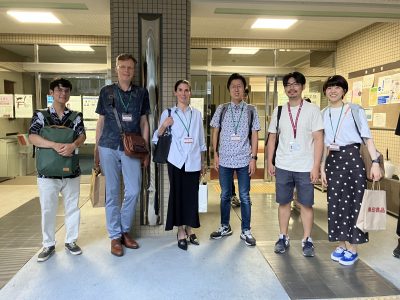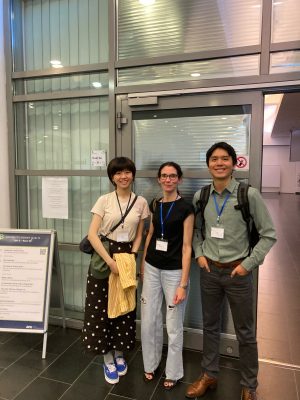The 2023 Tokyo Workshop on Computational and Theoretical Semantics took place at Ochanomizu University, Tokyo on July 21. UConn linguistics was represented at the workshop by:
- Muyi Yang (PhD 2023, now Osaka University). Back to Boolean: rethinking clausal conjunctions in attitude reports
- Teruyuki Mizuno (PhD 2023, now Ochanomizu University). Strategies for Anderson conditionals: their implications for the theory of O- and X-markings
- Magdalena and Stefan Kaufmann. Just in case?
- Stefan Kaufmann. Shifty if‘s iffy shifts
Muyi, Teru, Magda, and Stefan also took part in the Workshop in Semantics and Pragmatics at Komorebi in Ogoto-onsen, Shiga, July 24-25, where they presented Problem solving with Japanese “beki”.

(pictured: UConn linguistics contingent at the Ochanomizu University workshop)

